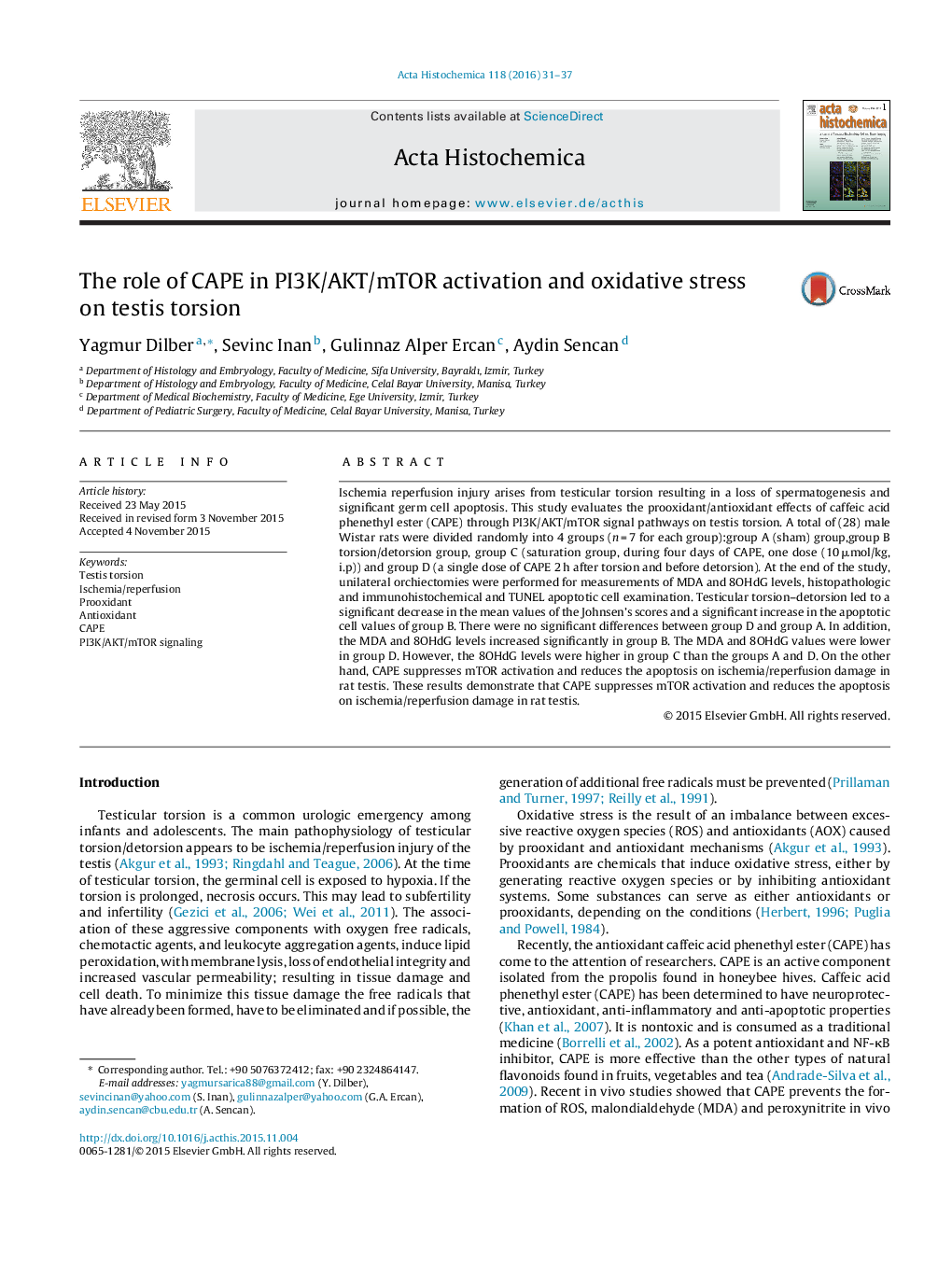| کد مقاله | کد نشریه | سال انتشار | مقاله انگلیسی | نسخه تمام متن |
|---|---|---|---|---|
| 1923420 | 1048892 | 2016 | 7 صفحه PDF | دانلود رایگان |

Ischemia reperfusion injury arises from testicular torsion resulting in a loss of spermatogenesis and significant germ cell apoptosis. This study evaluates the prooxidant/antioxidant effects of caffeic acid phenethyl ester (CAPE) through PI3K/AKT/mTOR signal pathways on testis torsion. A total of (28) male Wistar rats were divided randomly into 4 groups (n = 7 for each group):group A (sham) group,group B torsion/detorsion group, group C (saturation group, during four days of CAPE, one dose (10 μmol/kg, i.p)) and group D (a single dose of CAPE 2 h after torsion and before detorsion). At the end of the study, unilateral orchiectomies were performed for measurements of MDA and 8OHdG levels, histopathologic and immunohistochemical and TUNEL apoptotic cell examination. Testicular torsion–detorsion led to a significant decrease in the mean values of the Johnsen's scores and a significant increase in the apoptotic cell values of group B. There were no significant differences between group D and group A. In addition, the MDA and 8OHdG levels increased significantly in group B. The MDA and 8OHdG values were lower in group D. However, the 8OHdG levels were higher in group C than the groups A and D. On the other hand, CAPE suppresses mTOR activation and reduces the apoptosis on ischemia/reperfusion damage in rat testis. These results demonstrate that CAPE suppresses mTOR activation and reduces the apoptosis on ischemia/reperfusion damage in rat testis.
Journal: Acta Histochemica - Volume 118, Issue 1, January 2016, Pages 31–37